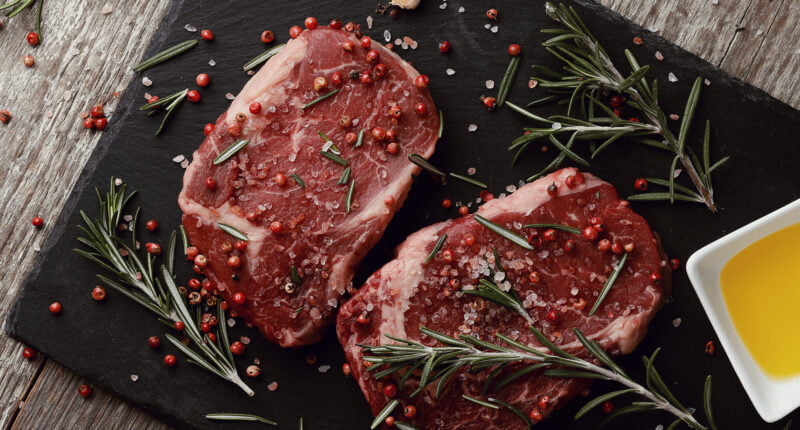We all know that processed meats are bad for our health, but did you know that they could also increase your risk of cancer? In this blog post, we’ll explore the link between pork and cancer, and what you can do to reduce your risk. So, does pork cause cancer? Let’s take a closer look.

Table of Contents
What is pork?
Pork is a type of meat that comes from pigs. It is a popular food in many cultures, but it has also been linked to cancer.
There are several different types of pork, including bacon, ham, and sausage. All of these meats have been linked to an increased risk of cancer, particularly colon cancer.
The link between pork and cancer is thought to be due to the high fat content of these meats. Fatty meats are known to increase the risk of certain cancers, so it stands to reason that pork would have the same effect.
In addition to the fat content, pork also contains a lot of cholesterol. This can lead to an increased risk of heart disease, which can in turn lead to cancer.
So, does pork cause cancer? The answer is not definitive, but there is definitely a link between the two. If you are concerned about your risk of cancer, you may want to limit your consumption of pork products.
What is cancer?
Cancer is a broad term for a group of diseases in which abnormal cells divide and grow uncontrolled in the body. Cancer can develop in almost any organ or tissue, and often spreads to other parts of the body.
There are more than 100 types of cancer, each with its own set of symptoms and treatment options. The most common types of cancer include:
- Breast cancer
- Lung cancer
- Prostate cancer
- Colorectal cancer
- Skin cancer
Does Pork Cause Cancer? The link between pork and cancer
One of the main risk factors for cancer is dietary patterns, with animal-based foods being linked to an increased risk.
Pork is a common animal-based food that has been linked to an increased risk of cancer. In fact, several studies have found that pork consumption is associated with an increased risk of various types of cancer, including stomach, colorectal, and pancreatic cancer.
There are a few possible explanations for the link between pork and cancer. First, pork is typically high in fat and calories, which can promote weight gain and obesity – two major risk factors for cancer. Additionally, pork often contains harmful chemicals such as nitrates and nitrites, which have been linked to an increased risk of cancer. Finally, pork may also be contaminated with carcinogenic viruses and bacteria, which can contribute to the development of cancer.
While the link between pork and cancer is clear, it’s important to remember that diet is just one piece of the puzzle when it comes to cancer risk. Other important factors include genetics, lifestyle choices (such as smoking), and environmental exposures. Therefore, it’s important to speak with your doctor about your individual risks before making any major changes to your diet.
How to avoid cancer-causing pork
It is true that pork can cause cancer. Cancer-causing pork has been linked to a number of different cancers, including colon cancer and rectal cancer.
There are a few things that you can do to avoid cancer-causing pork. First, make sure that the pork you eat is cooked properly. Pork that is not cooked properly can contain harmful parasites that can cause cancer.
Second, avoid eating processed pork products. Processed pork products, such as ham and bacon, often contain nitrates and other chemicals that can increase your risk of cancer.
Third, choose leaner cuts of pork. Fatty cuts of pork are more likely to be contaminated with carcinogens than leaner cuts.
Finally, limit your intake of cured pork products. Cured meats, such as ham and bacon, are often high in sodium and nitrates, which can contribute to the development of cancer.
Final Note
There is no definitive answer to whether or not pork causes cancer. However, there are some studies that suggest a possible link between the two. Pork contains a number of carcinogens, including nitrates and nitrites, which can convert into cancer-causing compounds in the body. There is also a growing body of evidence linking processed meats (including pork) to an increased risk of colorectal cancer. While more research is needed to confirm any potential link between pork and cancer, it may be wise to limit your consumption of pork (and other processed meats) to reduce your risk of developing cancer.
Read also About: Four Ways You Can Avoid The Side Effects of Hot Dogs









